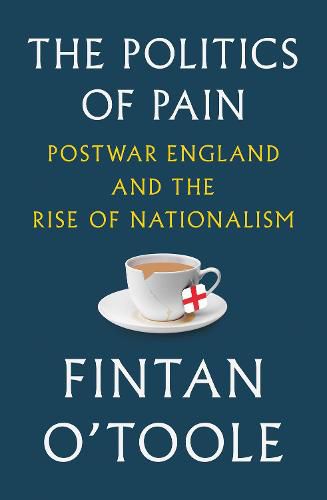Readings Newsletter
Become a Readings Member to make your shopping experience even easier.
Sign in or sign up for free!
You’re not far away from qualifying for FREE standard shipping within Australia
You’ve qualified for FREE standard shipping within Australia
The cart is loading…






England’s recent lurch to the right appears to be but one example of the nationalist wave sweeping across the world, yet as acclaimed Irish critic Fintan O'Toole suggests in The Politics of Pain, it is, in reality, a phenomenon rooted in World War II. We must look not to the vagaries of the European Union but, instead, far back to the end of the British empire, if we hope to understand our most fraternal ally–and the royal mess in which the British now find themselves. O'Toole depicts a roiling nation that almost ludicrously dreams of a German invasion, if only to get the blood going, and that erupts in faux outrage over regulations on prawn-flavored crisps. A sympathetic yet unsparing observer, O'Toole asks: How did a great nation bring itself to the point of such willful self-harm? His answer represents one of the most profound portraits of the English since Sarah Lyall’s New York Times bestseller The Anglo Files.
$9.00 standard shipping within Australia
FREE standard shipping within Australia for orders over $100.00
Express & International shipping calculated at checkout
Stock availability can be subject to change without notice. We recommend calling the shop or contacting our online team to check availability of low stock items. Please see our Shopping Online page for more details.
England’s recent lurch to the right appears to be but one example of the nationalist wave sweeping across the world, yet as acclaimed Irish critic Fintan O'Toole suggests in The Politics of Pain, it is, in reality, a phenomenon rooted in World War II. We must look not to the vagaries of the European Union but, instead, far back to the end of the British empire, if we hope to understand our most fraternal ally–and the royal mess in which the British now find themselves. O'Toole depicts a roiling nation that almost ludicrously dreams of a German invasion, if only to get the blood going, and that erupts in faux outrage over regulations on prawn-flavored crisps. A sympathetic yet unsparing observer, O'Toole asks: How did a great nation bring itself to the point of such willful self-harm? His answer represents one of the most profound portraits of the English since Sarah Lyall’s New York Times bestseller The Anglo Files.